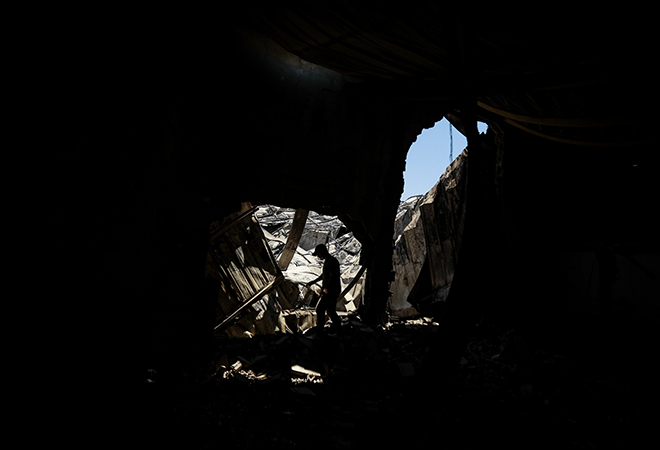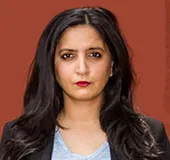
The Israeli government and the Islamist Palestinian group, Hamas, agreed to a ceasefire last week after eleven days of relentless bombardment, which began on 10 May. Many countries around the world, including the US, welcomed the silencing of guns and reiterated that a two-state solution is the only way to usher in peace in a region marred with violence since the creation of Israel in 1948 and the exodus of hundreds of thousands of Palestinians from their ancestral homeland.
Tor Wennesland, United Nations Special Coordinator for the Middle East Peace Process, was amongst the first to endorse the truce. “I welcome the ceasefire between #Gaza & #Israel," he tweeted on Thursday night, shortly before the ceasefire was enforced. “I extend my deepest condolences to the victims of the violence & their loved ones. I commend #Egypt & #Qatar for the efforts carried out, in close contact w/ the @UN, to help restore calm. The work of building #Palestine can start.”
The ceasefire, however, came far too late for 248 Palestinians, including 66 children, and 12 Israelis who were killed in the recent fighting. Israeli airstrikes also caused large-scale damage in Gaza. The New York Times reported that whilst 17 medical facilities were bombed, at least 1,000 buildings—including homes, offices of media companies, and Gaza’s single coronavirus testing facility had also been destroyed.
While Israel claimed it bombed sites that were a part of Hamas’s infrastructure and warned civilians beforehand, many Palestinians said not everyone was sounded off. Hamas, meanwhile, indiscriminately fired 4,300 rockets on Israeli cities but Israeli lives were saved because of the presence of the anti-missile iron dome defense system, partly funded by the US's military aid to Israel. The Israeli Prime Minister, Benjamin Netanyahu, thanked US President Joe Biden for continuing America’s unequivocal support towards Israeli security.
Netanyahu also boasted about the achievements of the Israeli Defense Forces (IDF) and said that Hamas had been “set back by years.” However, he did not share any details of the exact damage caused to the group that Israel and several other countries including the US have proscribed as a terrorist outfit.
Netanyahu also boasted about the achievements of the Israeli Defense Forces (IDF) and said that Hamas had been “set back by years.” However, he did not share any details of the exact damage caused to the group that Israel and several other countries including the US have proscribed as a terrorist outfit.
“The public doesn’t know everything, Hamas doesn’t know everything, but all our achievements will be revealed over time,” the Israeli Prime Minister was quoted as saying by the Jerusalem Post. “At this time, I can say we did daring and innovative things.” He added that Israel would never tolerate a barrage of rockets fired on its cities and that IDF has taught Hamas a lesson. “What happened in the past is not what will be…They always come out of their tunnels and their holes and brag, but they know what they brought upon themselves.”
Despite Netanyahu’s boastful comments, Israelis are questioning what, if anything, has been achieved by the whole exercise since no one believes that Hamas has been effectively deterred from attacking Israeli cities again. Instead, in these clashes, Hamas displayed that it has improved the range and precision of its rockets even though it produces them locally.
The Palestinian President, Mahmoud Abbas, does not get along with Hamas and does not approve of its approach to resolving the conflict with Israel but he blamed Israel for trying to provoke tensions again. Last Friday, hours after the ceasefire was announced, Israeli police fired rubber bullets at worshippers at Al-Aqsa compound allegedly responding to stone-throwers—the same highhandedness that had led to the recent clashes two weeks ago.
“The Israeli government, by continuing its policy of provocation, attacks, and incursions, is challenging international efforts that have been made to reach a calm, and stop the violence and escalation in Jerusalem and the occupied Palestinian territories, and to stop the aggression on Gaza,” President Abbas said in a statement.
So far the ceasefire has been upheld and both sides have claimed victory. But there is little disagreement amongst experts that peace will continue to elude both Israelis and Palestinians unless a two-state solution is implemented. Israel can wish to merely manage the conflict but if it wants an end to the violence then it would have to accommodate the Palestinians’ wishes too.
So far the ceasefire has been upheld and both sides have claimed victory. But there is little disagreement amongst experts that peace will continue to elude both Israelis and Palestinians unless a two-state solution is implemented. Israel can wish to merely manage the conflict but if it wants an end to the violence then it would have to accommodate the Palestinians’ wishes too.
The views expressed above belong to the author(s). ORF research and analyses now available on Telegram! Click here to access our curated content — blogs, longforms and interviews.




 PREV
PREV


